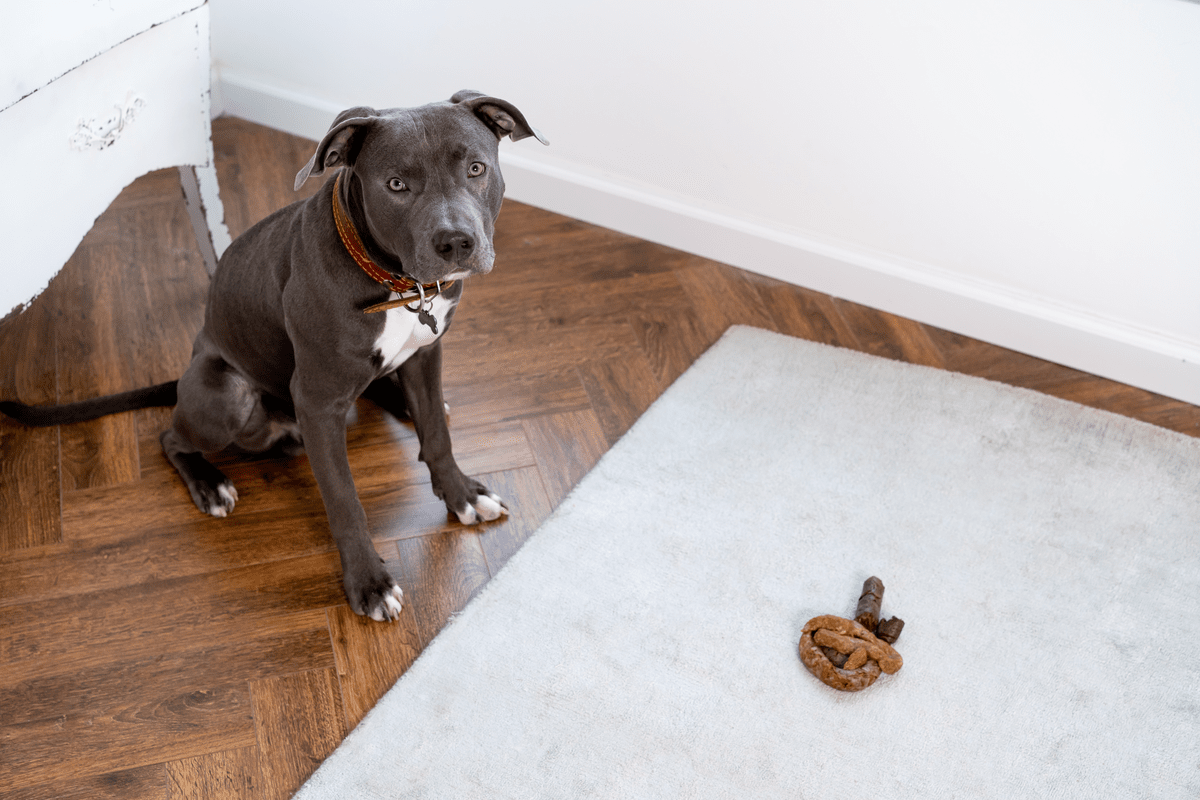One of the recommendations regarding pet care by veterinarians is to monitor and keep track of your dog’s poo. It’s definitely not something pleasant, but observing their poo helps identify their state of health. It also helps understand if the dog’s diet is adequate or needs to be changed.`
Very few people know the importance of keeping track of their pet’s stool. Its color and/or consistency give us an idea of their health. Although every dog is unique, dog stool should typically be dark brown and not too soft or hard in consistency. Of course, if your dog is on a special diet, the stool may turn a different color.
What does each type of poop mean for your dog?
Now that you know there are different types of dog poop, let’s help you identify the significance of different kinds of stool on their health. To do this, we must take into account color, frequency, consistency, and quantity. Taking this into account, you will be able to monitor any change in their stool and act in time if the situation warrants it.

Stool with parasites
If when you go for a walk with your dog you notice worms or small white eggs in their stool, it means that your pet has parasites. The worms in the poop of dogs are expelled through the stool and this is where we can identify them. You can take a sample to the vet and run the necessary tests. This way, you’ll be able to provide your furry friend with the right treatment as quickly as possible.
White coloured stool
White dog poop can be an indication that your pet has been ingesting too much calcium. This type of stool is not so common and usually occurs in those who follow the BARF diet. On the other hand, if your dog has eaten the wrong food or is under a lot of stress and anxiety, it can lead to white stools. You should go to your veterinarian to evaluate any problem or check if a pathogen is present.
Stool with mucus and blood
If you have noticed dog poop with mucus and blood you should pay close attention. This is usually an indication of a mucosal injury, irritation, or some type of infection caused by bacteria. If you have noticed this type of stool, you should take your little friend to the vet as soon as possible. Normally, your dog will be dewormed and rehydrated and fiber should be removed from the diet for a period of time.
Stool with white dots
Does your pet’s feces have white dots? Do not be alarmed! Although this is an indication that something is not right, we must analyze everything calmly. The first thing to keep in mind is that it is probably the remains of parasites. The best thing you can do is go to the vet and follow the corresponding treatment.
Black Coloured Stool
Dog poop, with an intense black color, is an indication that something is wrong with the animal’s body. When stools turn this color, it could be blood in the digestive tract. This is something that can happen as a result of eating bones or even the presence of cancer. However, if your dog is on a diet with a lot of meat or liver, it may be the reason for the color of the stool. If that is your case, you have nothing to worry about.
Orange Coloured Stool
Something to keep in mind when seeing orange stools is that it is very easy to confuse red with yellow. Even more so, when we are alerted because our little friend excretes strangely.
It is important to stay calm and analyse the colors well. Make sure the colour is orange and not a color caused by blood stains. If you’ve already confirmed that they have orange stools, this may be due to a liver problem.
Orange dog poo is an indication that your pet may have a condition that is affecting his liver or gall bladder. Normally, the orange hue is due to mixing the yellow color of the bile with the brown. The ideal thing for your pet is that you take him to the vet as soon as possible because if it is bloody poo it can be something serious and requires urgent attention.
What is Gudog?
Gudog is the easiest way to find & book the perfect dog Sitter. Thousands of loving Sitters are ready to care for your dog like family! All bookings come with Veterinary Care & Free Cancellation.
